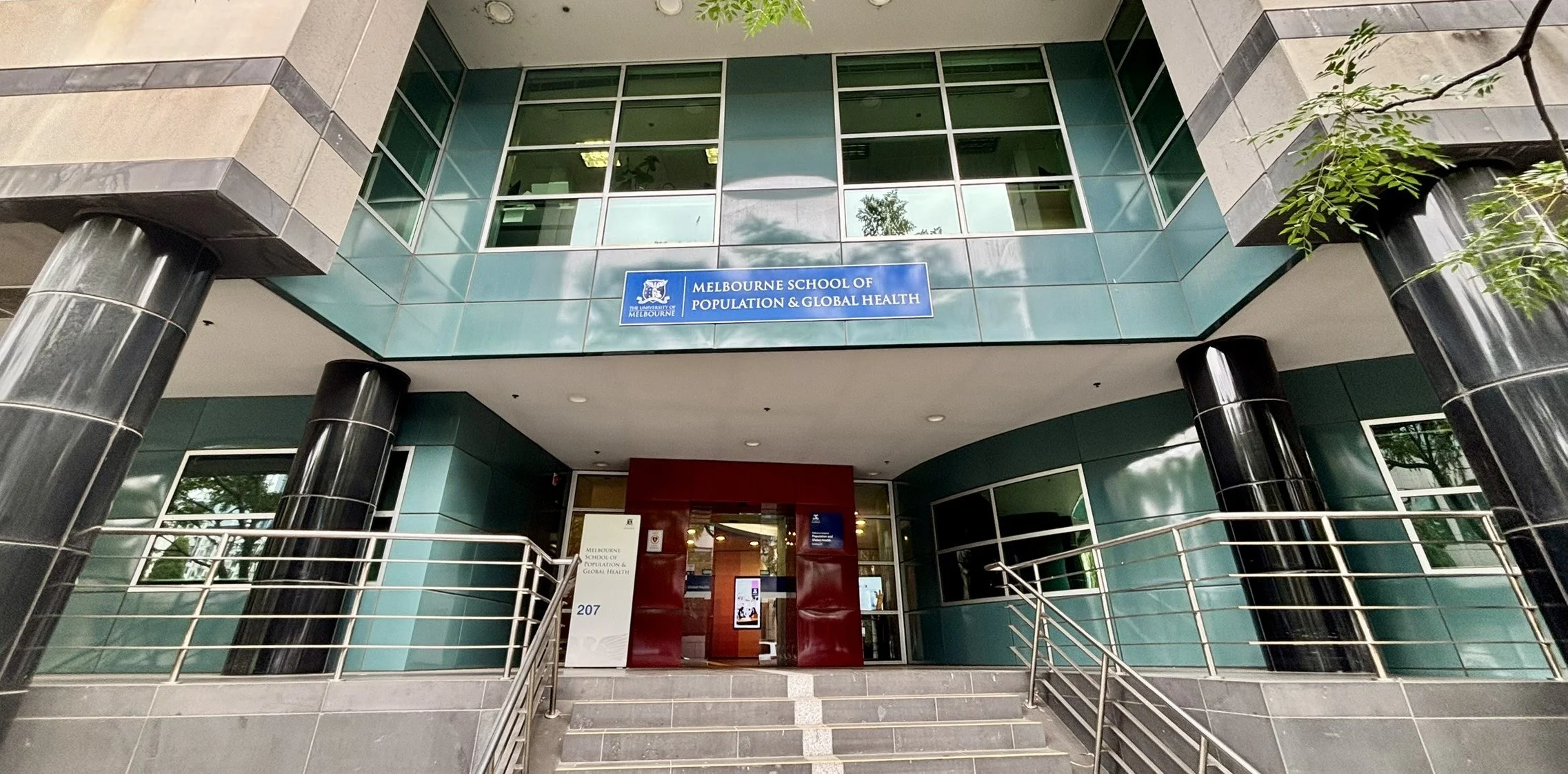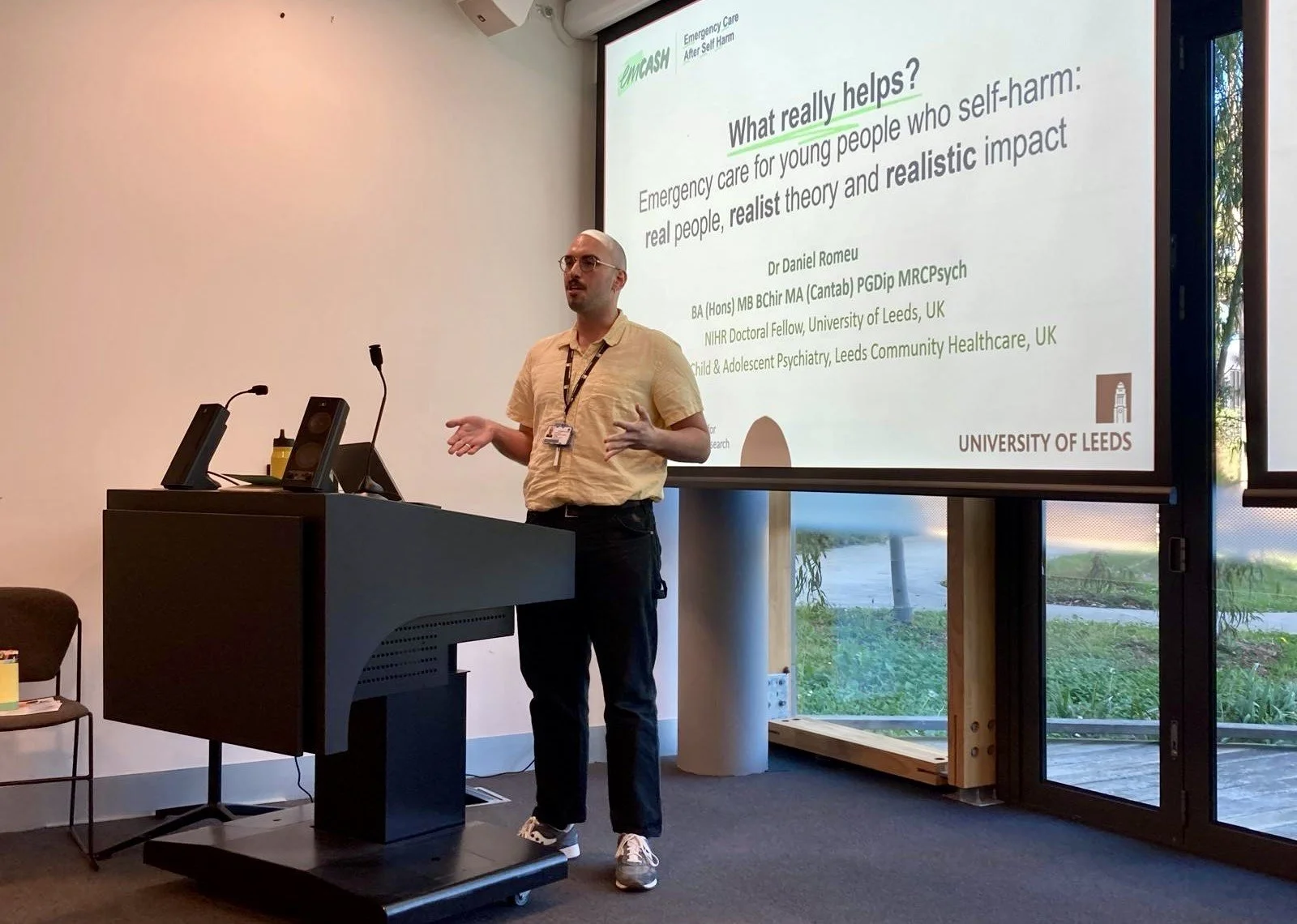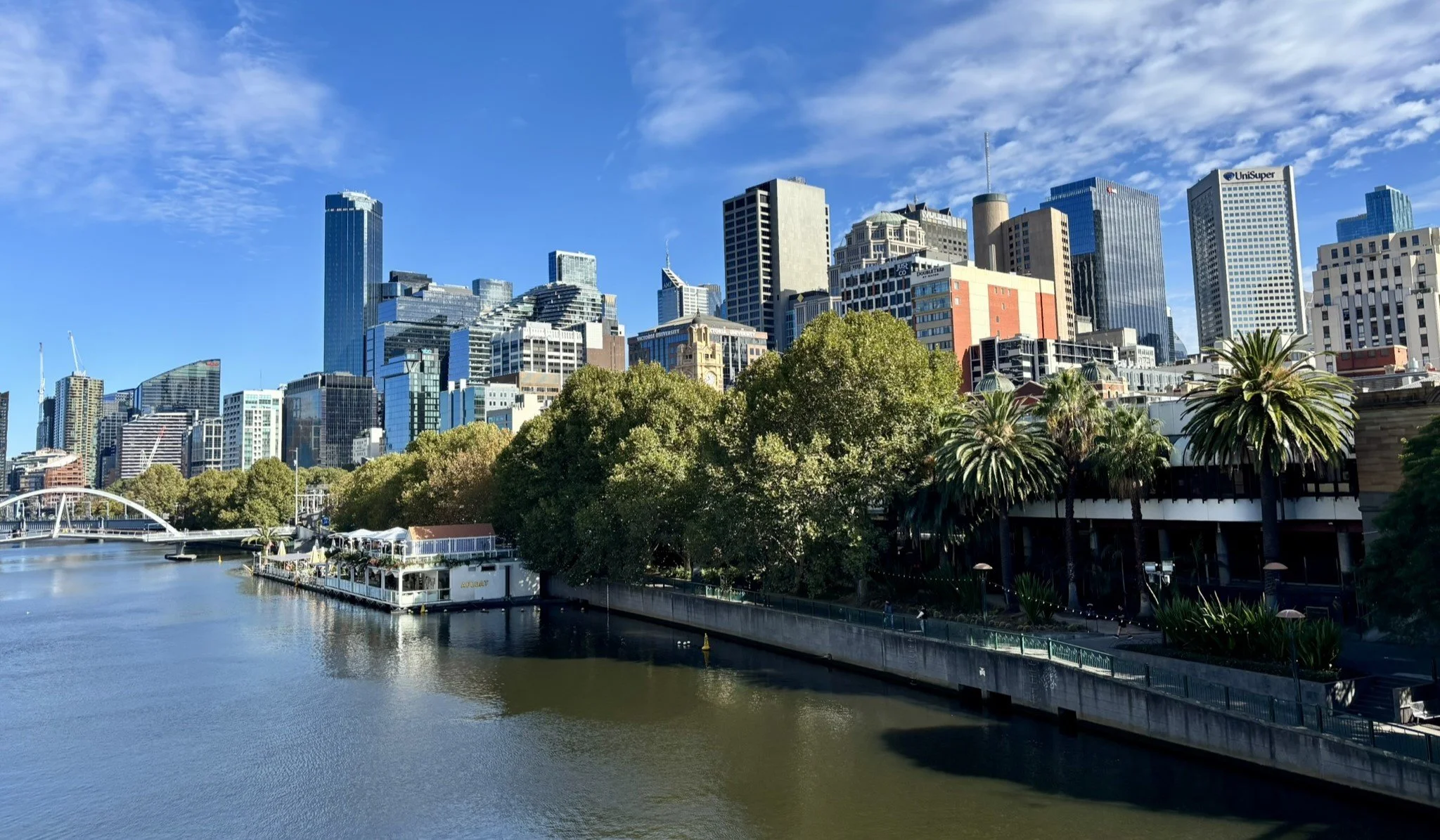Research visit to Australia, Week 3: Melbourne
My final stop in Australia was Melbourne: a vibrant city of stunning views, green spaces and incredible researchers. I spent the week hosted by Professor Matthew Spittal at the University of Melbourne, who warmly welcomed me into the School of Population and Global Health. I had my own desk (a rare treat!) and got straight to work.
One of the first people I met was Professor Jane Pirkis. Over coffee, we chatted about how involving decision-makers – like NHS leaders – early in a project can help make research more useful. If they’re on board from the beginning, they’re more likely to listen to the findings and use them to make things better.
My office for the week!
I gave a presentation about the EmCASH project to researchers at the Centre for Mental Health and Community Wellbeing. It was really encouraging to meet people who are also passionate about youth mental health and lived experience. I was given lots of helpful reading, including guidance from Orygen, one of the leading youth mental health organisations in Australia.
Speaking of Orygen – visiting them was a real highlight of my week. Based just outside the city, Orygen is a centre for clinical care, research, training and advocacy. I met a whole team of passionate researchers working on projects ranging from social media safety to suicide prevention to data modelling. Their energy, warmth and creativity were inspiring.
Me presenting the EmCASH project to the Orygen team - I was nervous but they were lovely and encouraging :-)
I learned about the HOPE programme, a service for young people who come to hospital after self-harm. HOPE supports them for up to three months afterwards. What young people say they like best about HOPE is that it’s safe, non-judgmental and flexible. Staff involve family where appropriate, and make links with schools and other services. Peer workers – people with their own lived experience – are part of the team too. But it’s not perfect. Some groups, especially young people from culturally diverse backgrounds or those working full-time, might not be as able to access the support. Staff also spoke openly about burnout and how important good supervision and wellbeing support is in this kind of work.
I also learned a lot from Associate Professor Gili Bedi about youth substance use. We talked about how tricky it can be to support young people who use drugs or alcohol. Many don’t see their substance use as a problem – in fact, it’s often their way of coping. And until they’ve had enough time to learn from experience, many are not ready to make changes. Gili told me that taking a whole-person approach – not just focusing on the drug use – is key.
As I left Melbourne, I felt full of questions – but also hope. Like the UK, Australia is facing big challenges in youth mental health. Services are stretched, especially for those with complex needs. But across every conversation, I saw a shared commitment to listen better, act earlier, and do things differently. I’m taking all of this learning with me as I return home to keep building EmCASH.
Just one of many beautiful Melbourne skyline views!



